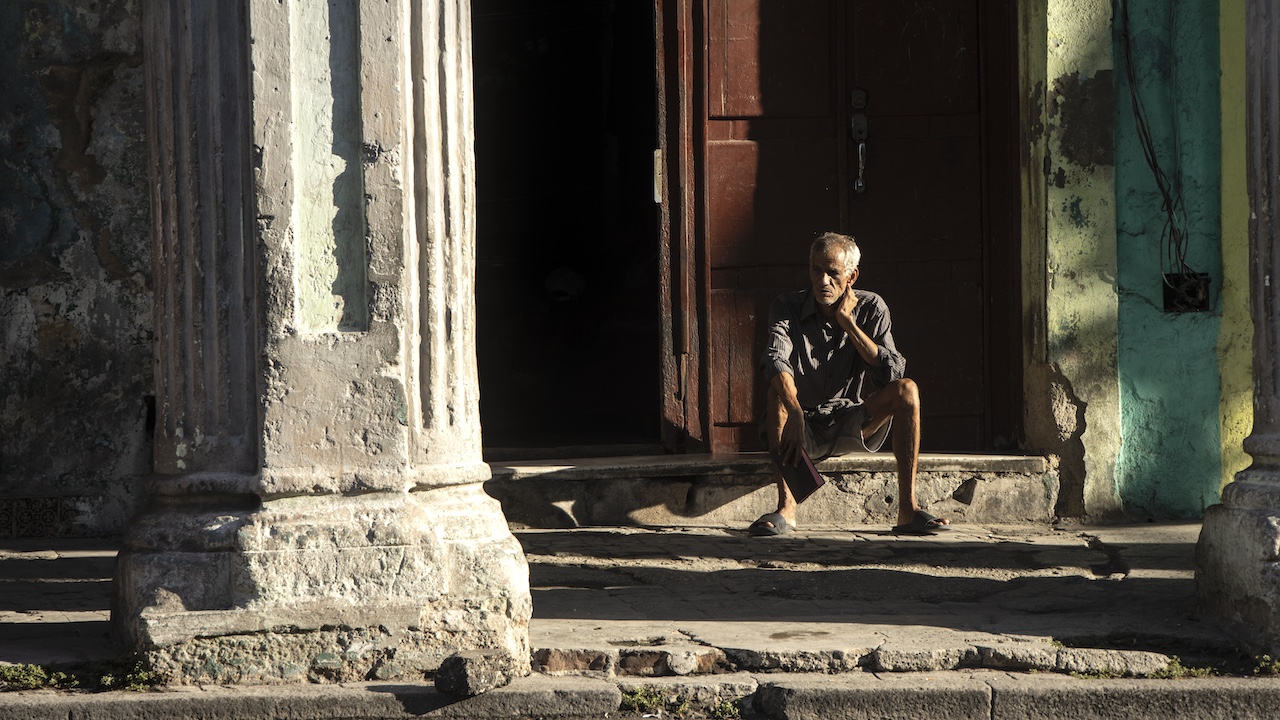Ignacio worked for 42 years as a restaurant worker and has been retired for 14. His pension is one of the lowest in Cuba: just over 1,500 pesos. "Right now the only thing I can buy with that is a liter of oil or five pounds of sugar. What about everything else?" he asks.
"The idea was that you worked your whole life, and in your old age you lived on your retirement, but it turned out to be a lie. We were conned, and the worst thing is the humiliation of having to depend on others having a retirement. I was always proud of supporting myself, and I thought I would always be able to, but now I'm 'vulnerable' and need my children or the Church to give me things, because what I earned has lost all its value. It's worthless. We were cheated," he complains.
Amaury is a former health worker, in the Hygiene and Epidemiology area, and he also feels cheated: "I worked for 45 years before I was supposed to retire, but I didn't; I continued to work as a teacher for seven more years. I gave everything for the sector, and now I can no longer work, due to an illness. The 3,100 pesos I get are gone in a flash, not even enough for a week," he explains.
"Prices are skyrocketing, and both salaries and pensions remain the same, static, as if nothing had changed. The government doesn't care how we live, or what we live on. It's a lack of respect, and a whole bunch of things. After working all your life, you end up without a pension. That's what happens. We lost our retirement, because the pittance we get and nothing are about the same thing. If I were healthy I'd start working again in the private sector, because I need it, but I can't."
Retirees and pensioners are two of the most vulnerable social groups hardest hit by the worsening of the general economic crisis in Cuba. They have to face inflation, which is increasingly disproportionate, and are totally unprotected, with very limited purchasing power.
In this context, the instability of the state's basic groceries subsidy, which has been worsening over the last six months, exacerbates the hardships historically generated by insufficient wages, an endemic feature of the state-planned economic system imposed for more than six decades by the Communist Party.
"We worked our whole lives for a retirement, only to end up living on handouts. If you don't have at least one child in another country to send you something, you starve. My two sons send me $150 each, and that's my real retirement. The one I earned is symbolic, as it's not enough for anything," says José Antonio, an education retiree.
"This country has already fallen apart. There are no medicines, the hospitals are useless, the food there is too expensive, and we don't have a government that cares about the people. In fact, they make it even worse with their inventions. Growing old here in Cuba is an ordeal. And in a country like this, which used to be a gem.'"
The average salary in Cuba is 4,000 pesos, which comes to just over 11 dollars at the informal exchange rate, which is that at which retail prices are set. The minimum wage is only 2,100 pesos, about six dollars for a whole month. The minimum retirement pension is 1,528 pesos, barely four dollars, and on average does not exceed ten dollars a month.
Instead of wages or pensions earned throughout their working lives, remittances sent from abroad, mainly from the United States, are the main source of income for about half of Cuban families, but the other 50% exists, and bears the brunt of the crisis.
Increasingly, the elderly are begging in public places, or scavenging in the garbage, or reselling newspapers and cigarettes just to survive. And when you look into it, the vast majority have pensions that are virtually nothing, revealing a sad reality that is not only about money, but also about the psychological state of people who should have economic security, but and ended up being cheated by the State-Government, and living in penury.
